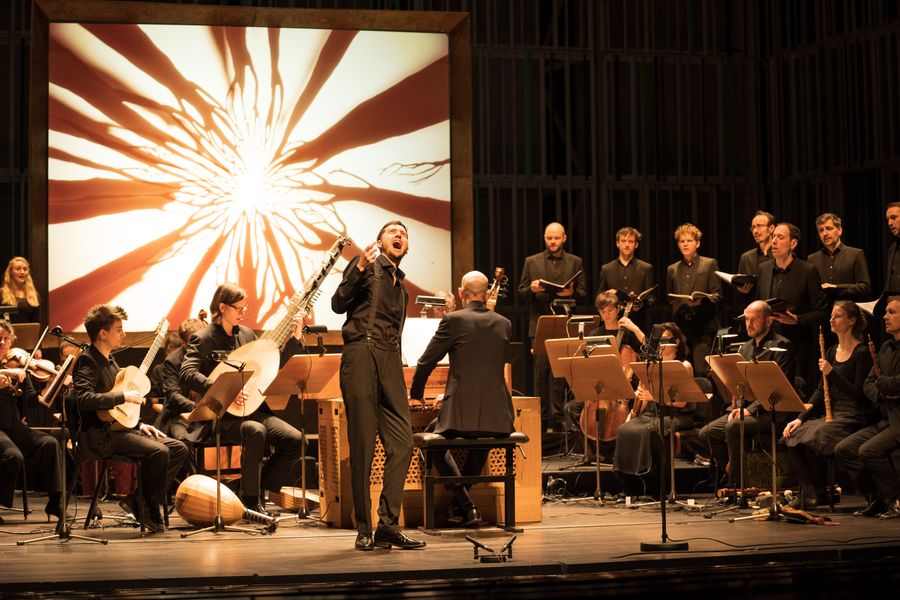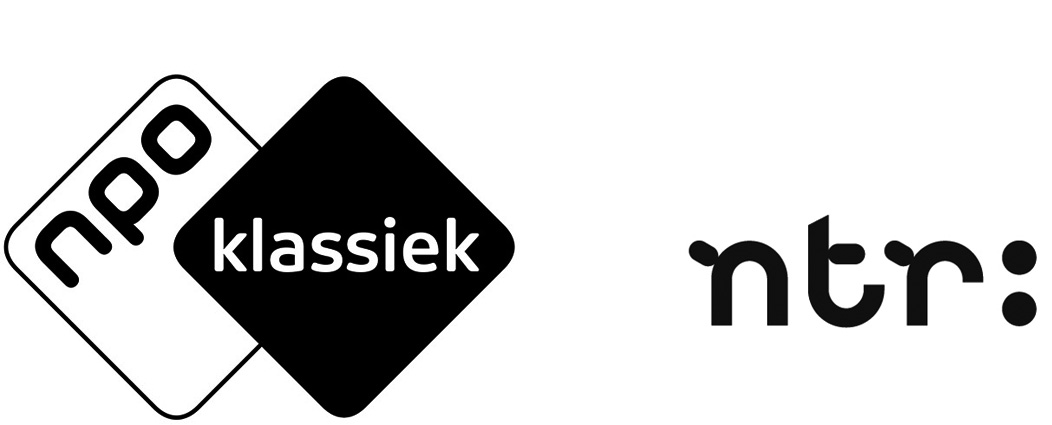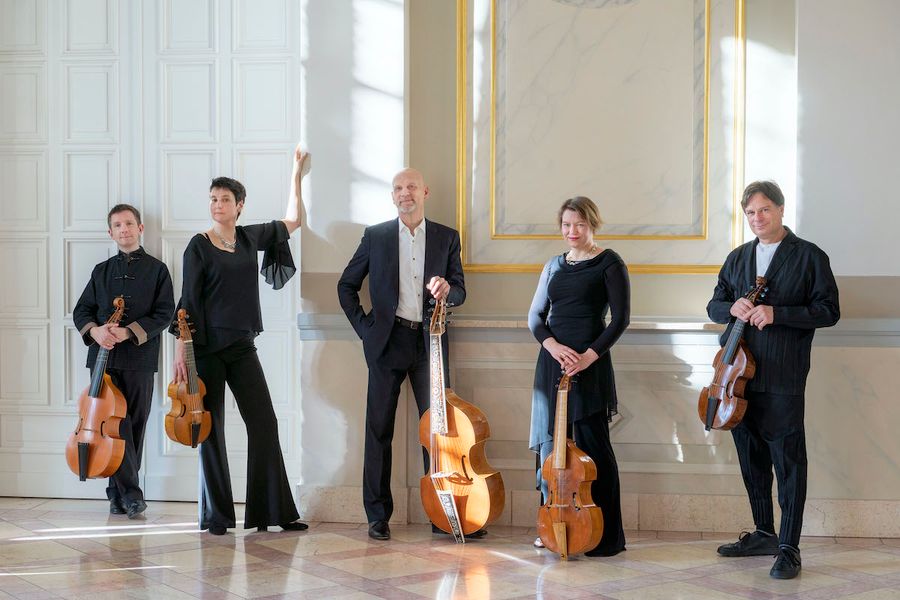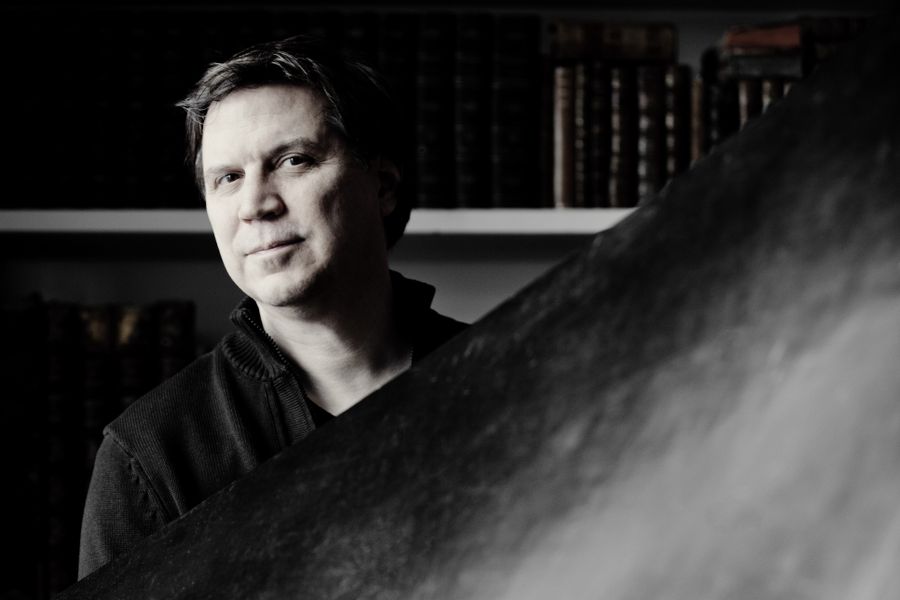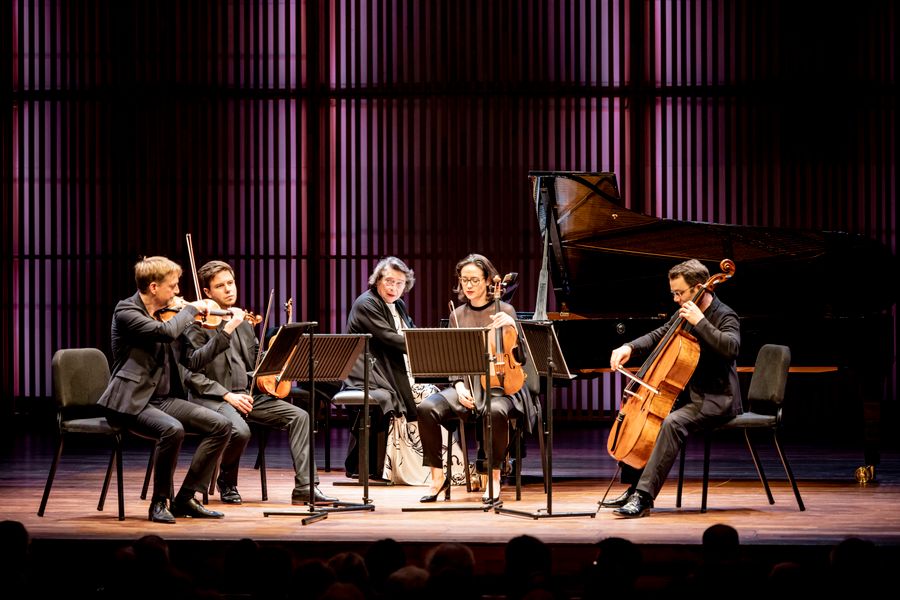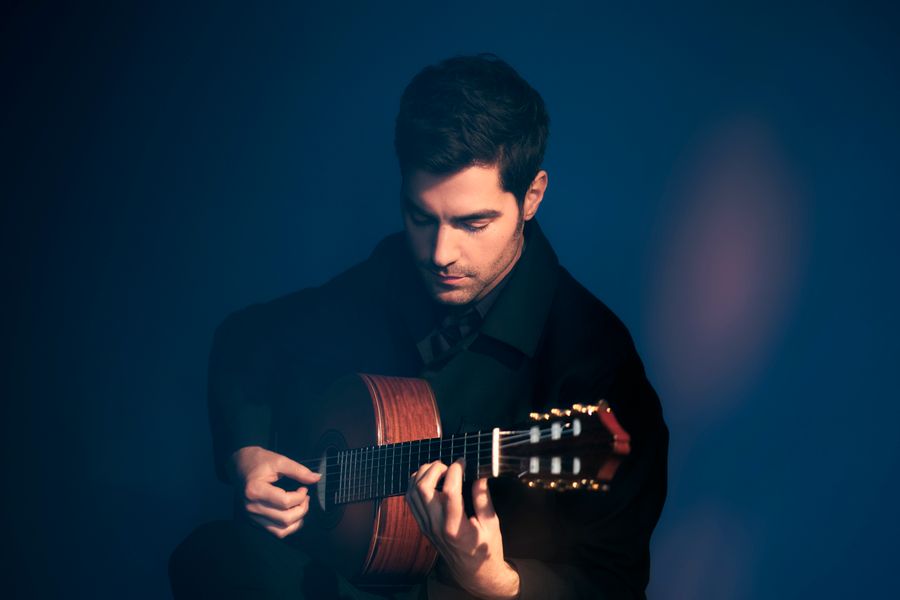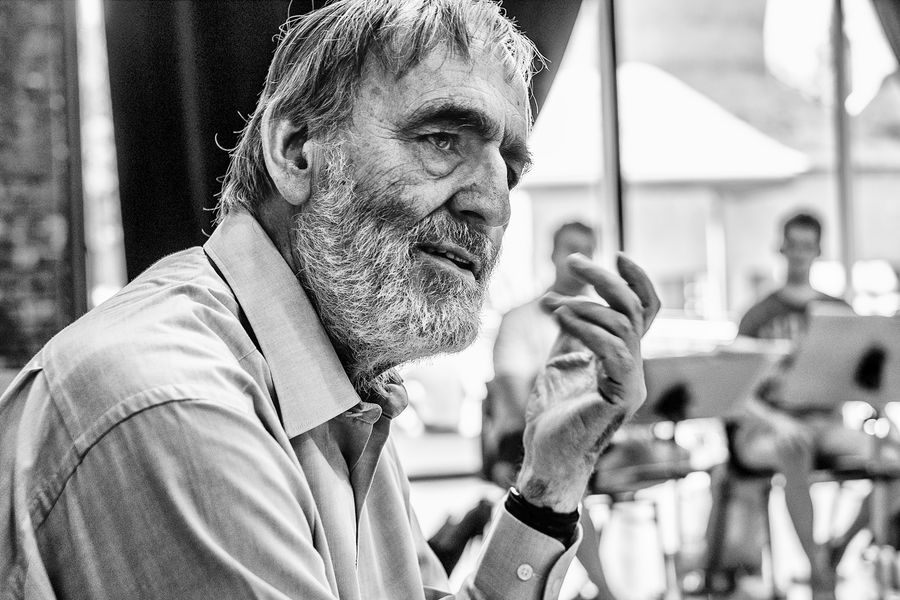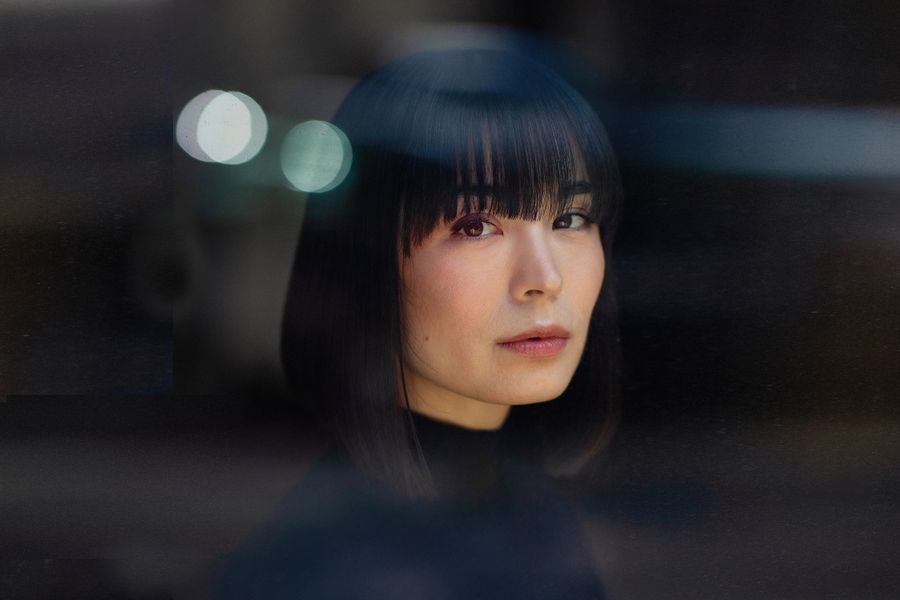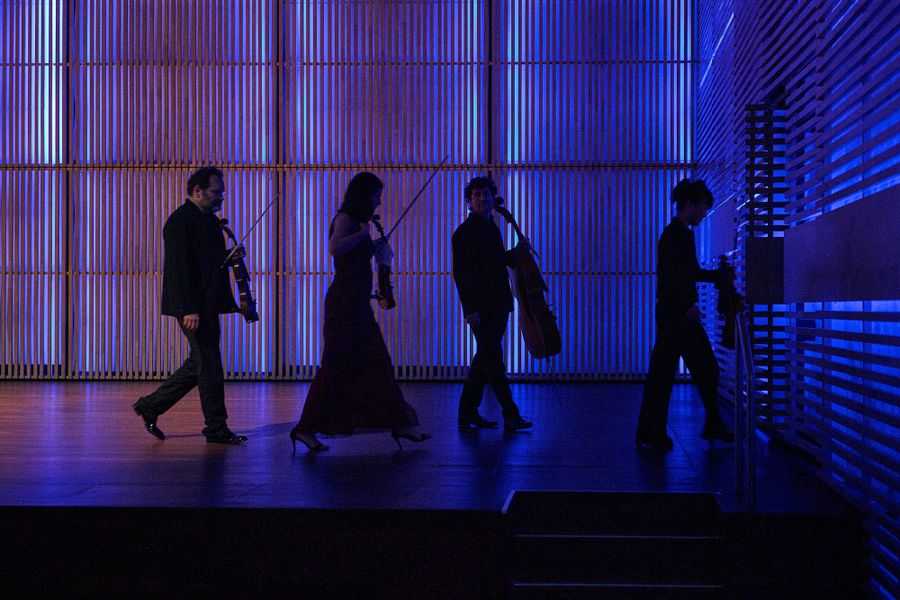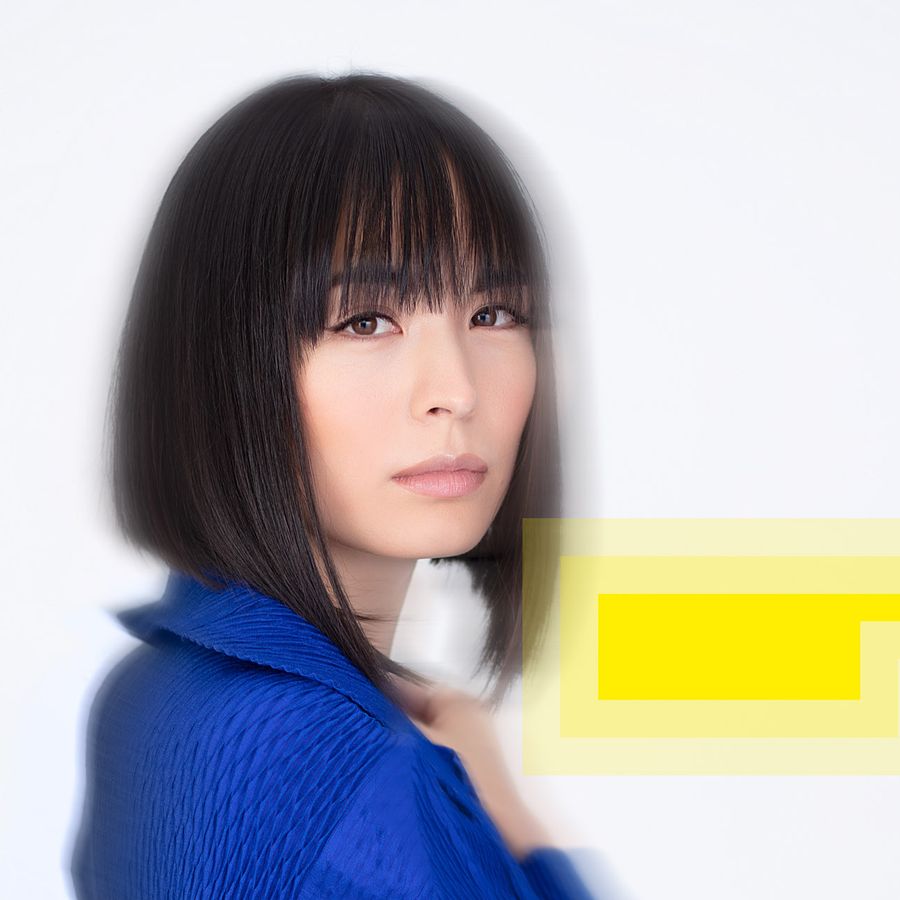
Highlights
February 2025
The month of February is full of musical highlights! We have selected special concerts in different genres.
Agenda
-
Purcell’s The Fairy Queen
Vox LuminisStaged version of ground-breaking semi-operaPurcell
Sun 23 Feb 2025‘It’s as if it was written for them,’ the press raved about The Fairy Queen à la Vox. For his pioneering semi-opera, Henry Purcell turned to the words of that other English giant, William Shakespeare. The result? A fairy tale in which nothing is what it seems in a production populated by shadow puppets. The work of set designer Lauwers and videographer Mário Melo Costa add to the creation of an enchanting experience for the audience.
Purcell distributed the vocal parts over a large number of soloists, resulting in a multitude of voices that populate this world of illusion and suggestion. The sparkling voices of the ensemble resound between the shadow puppets, like visions between the material and immaterial worlds.
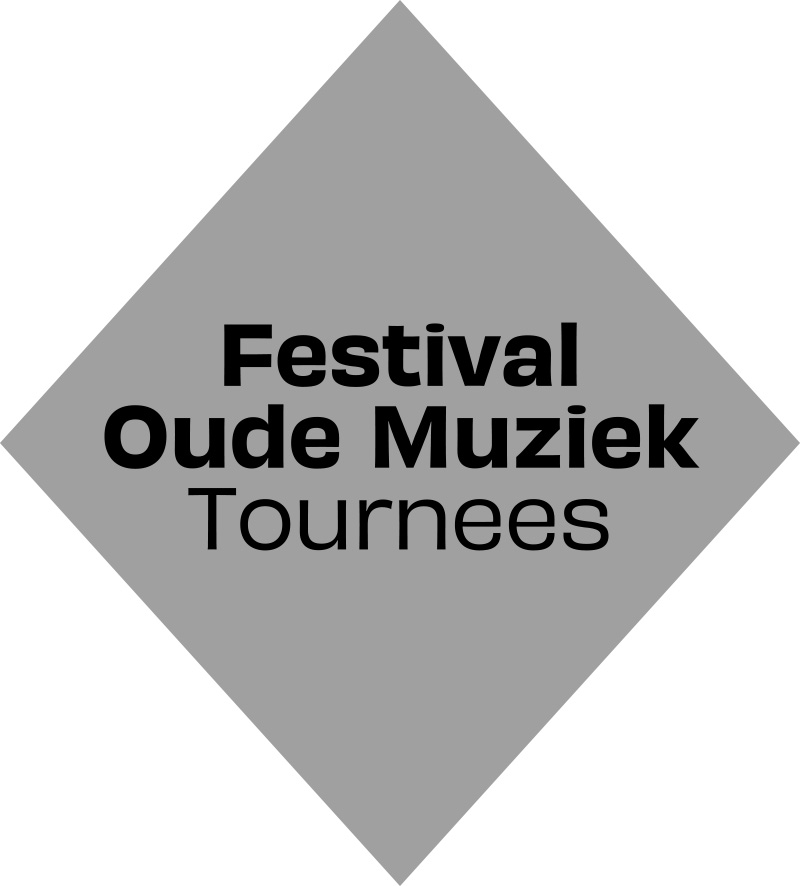
This concert will be recorded to be broadcast later by NTR on NPO Klassiek
Program
The Fairy Queen by Henry Purcell on a libretto by John Dryden (based on A Midsummer Night’s Dream by William Shakespeare)
Credits
Vox Luminis
Tuomo Suni concertmaster
Simon Robson actor, text
Isaline Claeys dramaturgy, text
Emilie Lauwers scenography, concept
Mário Melo Costa video production
David Carney decor, light design -
Polyphony for three
PhantasmMusical adventurers from 16th-century England Tye, Byrd, Locke, Purcell, JS Bach a.o.
Sun 23 Feb 2025A sprinkle of experimentation, a dash of nonconformity – it’s of all times. And it’s what makes music so lively. The three gentlemen of Phantasm present a pretty daring programme. Because in 16th-century England, too, you had musical adventurers: from Tye to Purcell, from Tomkins to Gibbons. This programme also features a lot of William Byrd, called the ‘Father of English Music’, and rightly so.
The most beautiful counterpoint leads to exciting situations. Counterpoint (‘point against point’) is the art of weaving melodies together in such a way that they sound good both individually and as a whole. And no matter what path you take, it will all be okay; or as composer Christopher Tye instructed: ‘Sing ye true and care not, for I am true, fear not.’

This concert will be recorded to be broadcast later by NTR on NPO Klassiek
Program
Christopher Tye Sit Fast
Elway Bevin Browning
Thomas Tomkins Fantasia XIV a3
William Byrd Sermone Blando a3
William Byrd Fantasia I a3
William Byrd Fantasia II a3
William Byrd Fantasia III a3
Orlando Gibbons Two Fantasies in Three Parts
Matthew Locke The flat consort 'For my cousin Kemble', Suite No. 1
Henry Purcell Three Fantazias a3
Johann Sebastian Bach Prelude and Fugue No. 19Credits
Phantasm:
Laurence Dreyfus viola da gamba
Jonathan Manson viola da gamba
Markku Luolajan-Mikkola double bass -
Fiery virginalists
Skip SempéColourful music for an adventurous harpsichordistByrd, Gibbons, Philips, Purcell e.a.
Sun 23 Feb 2025The world of the English virginalists between 1550 and 1650 buzzed with life and colour. From the simplest melodies to flamboyant shows, from dance music to the magic of the polyphonic Renaissance tradition. The adventurous American harpsichordist Skip Sempé plays the music of William Byrd, Orlando di Lasso, Henry Purcell and all the others as if he was made for it.
For him – and for us – it is a delight to browse through the Fitzwilliam Virginal Book, a collection of harpsichord pieces from 16th century England, when Elizabeth I reigned. Pavanes, galliards, masques, airs: utterly breath-taking. Skip Sempé attracted attention early on for his unique interpretations. He won the Diapason d’Or de l’année, the Choc du Monde de la Musique, the Grand Prix du Disque, the Preis der Deutschen Schallplattenkritik, and a Grammy Award nomination for them.

Program
Music from the Fitzwilliam Virginal Book: Preludes, Pavanes & Galliards, Fantasieën, Dansen, Lamenti, Madrigalen, Masques, Airs and Grounds by William Byrd, Orlando Gibbons, William Tisdall, Giovanni Picchi, William Inglott, Peter Philips, John Munday and Henry Purcell
Credits
Skip Sempé harpsichord
-
Schumann’s piano quartet and quintet
Elisabeth Leonskaja + Streichquartett der Staatskapelle BerlinEnergetic and moving chamber music by Schumann and MendelssohnMendelssohn, Schumann
Sat 22 Feb 2025Elisabeth Leonskaya hardly needs an introduction. This highly respected and accomplished pianist is now almost 80 years old and has performed with virtually all the great classical musicians of her time, from Svjatoslav Richter to the Alban Berg Quartet. She has won acclaim in recent years for her recitals at the Muziekgebouw, where she performed Beethoven’s and Schubert’s last sonatas. And in 2022, she teamed up with the Streichquartett der Staatskapelle Berlin to deliver an ‘impressive Brahms marathon’ (De Nieuwe Muze). This time, the grande dame of the grand piano performs masterpieces by Schumann and Mendelssohn with her favourite string quartet.
The string quartet that was born out of the Staatskapelle Berlin in 2017 has found a formidable partner in Elisabeth Leonskaja. Together they work their magic on Robert Schumann’s Piano Quartet and Piano Quintet, two exceptionally successful pieces full of joie de vivre. Serving as a buffer between these pillars of romantic chamber music is Felix Mendelssohn’s poignant Sixth String Quartet, a homage to his sister Fanny, who died in May 1847. It was the last work he completed; he died in November of that same year.
Programma booklet (Dutch)
Program
Robert Schumann Piano Quartet Op. 47
Felix Mendelssohn String Quartet No. 6 in F minor
Robert Schumann Piano Quintet Op. 44Credits
Elisabeth Leonskaja piano
Streichquartett der Staatskapelle Berlin -
Baroque
MILOŠ + ArcangeloA remarkable classical guitarist of our time: impressive, expressive, and virtuosoVivaldi, Boccherini, Bach, Rameau a.o.
Fri 21 Feb 2025When it comes to today’s classical guitarists, there is one name that stands out: Miloš Karadaglić, a native of Montenegro. Impressive technique, expressive playing style – a virtuoso with a pop star status. He takes famous baroque works by composers like Händel, Vivaldi, Rameau and Purcell and reimagines them for guitar and ensemble. Familiar music, but with a new and contemporary sound. The musician’s hard work has paid off, with record contracts from Sony and Deutsche Grammophon.
Music from a Spanish fandango by Boccherini to the gentle lyricism of Purcell’s The Fairy Queen. From contemplative sounds from Rameau’s Les Boréades to a lively concerto grosso by Handel. The English baroque ensemble Arcangelo was founded in 2010. In a short time, the ensemble has built up an impressive reputation, with a string of award-winning recordings. The collaboration with MILOŠ is a match made in heaven and will undoubtedly result in more awards.
Programme booklet (Dutch)
Program
Antonio Vivaldi Sinfonia from L'Olimpiade
Alessandro Marcello Adagio from Oboe Concerto in D minor
Luigi Boccherini Fandango
Johann Sebastian Bach Chaconne
Georg Friedrich Händel Concerto grosso in G minor Op. 6 No. 6 HWV 324
Francesco Geminiani Concerto grosso in D minor 'La Folia'
Jean-Philippe Rameau Les arts et les heures from Les Boréades
Georg Friedrich Händel Menuet from Suite HWV 434
Silvius Leopold Weiss Passacaglia
Henry Purcell Parts from Suite The Fairy Queen
Henry Purcell Timon of Athens, Curtain Tune
Antonio Vivaldi Concerto in D RV 93Credits
MILOŠ guitar
Arcangelo
Jonathan Cohen conductor -
Lachenmann
Mark Simpson, Jean-Guihen Queyras + Pierre-Laurent AimardUnique concert featuring music by the last modernist still alive Lachenmann
Thu 20 Feb 2025Simpson, Queyras and Aimard are three top musicians who are not afraid of adventure. They join forces for a unique concert with music by the last modernist still alive, Helmut Lachenmann. Fifty years ago, his experimental music was heralded as a thrilling vision of the future. A vision that remains potent for those willing to shed old listening habits. Lachenmann’s mysterious world enchants with nothing more than sound and musical imagination, opening up uncharted realms.
Lachenmann’s music reveals connections and sonic beauty in a wide range of colours, going beyond mere abstract structure. He builds enigmatic, rustling sound palaces that transcend earthly reality, yet provoke contemplation. As in Allegro Sostenuto, the central work of this concert with clear contours and a wide range of timbres for clarinet, cello and piano.
TIP: Attend the public rehearsal on Wednesday 19 February at 11:30 a.m.
Porgramme booklet (Dutch)Program
19.15 uur / Foyerdeck 1 / Inleiding
by Thea Derks20:15 / Grote Zaal / Main programme
Helmut Lachenmann Wiegenmusik for piano solo
Helmut Lachenmann Pression for cello solo
Helmut Lachenmann Dal niente for clarinet solo
Helmut Lachenmann Allegro Sostenuto for clarinet, cello and pianoCredits
Mark Simpson clarinet
Jean-Guihen Queyras cello
Pierre-Laurent Aimard piano -
Piano Recital: John Field & Beethoven
Alice Sara OttBeethoven and Field’s nocturnal melancholiesField, Beethoven
Sat 15 Feb 2025It doesn’t get more melancholic than the Mondschein Sonata. The most famous piano sonata by Ludwig van Beethoven is the ultimate romantic masterpiece. It captures the emotions of longing and loneliness and sublimates these into beauty. World-renowned pianist Alice Sara Ott makes her debut at the Muziekgebouw with a recital in which she combines Beethoven with a less well-known contemporary, the Irish composer John Field, of whom she plays a selection from his Nocturnes.
Today, we associate the term ‘nocturne’ first and foremost with Chopin – whose work continues to weave its way through Ott’s discography. But it was John Field who first used the term for a contemplative, melodious piano piece. For her latest album, Ott has recorded all of Field’s Nocturnes; with this, she writes a new chapter in her unique and original oeuvre.
Programme booklet (Dutch)Program
John Field Nocturne No. 17 in C Major
Ludwig van Beethoven Piano Sonata No.19 in G Minor Op. 49 No.1
John Field Nocturne No. 1 in E Flat Major
John Field Nocturne No. 2 in C Minor
John Field Nocturne No. 4 in A Major
John Field Nocturne No. 10 in E Major
Ludwig van Beethoven Piano Sonata No. 30 in E Major Op.109
John Field Nocturne No.14 in G Major
John Field Nocturne No.16 in C Major
John Field Nocturne No. 9 in E Minor
John Field Nocturne No.12 in E Major
Ludwig van Beethoven Piano Sonata No.14 in C-Sharp Minor Op. 27 No. 2 'Moonlight Sonata'Credits
Alice Sara Ott piano
-
Beethoven & Schoenberg
Belcea QuartetTwo masters of the string quartetSchoenberg, Beethoven
Sat 8 Feb 2025Music is not a competition. But if points were awarded, the overwhelmingly beautiful String Quartet No. 14 Op. 131 by Ludwig van Beethoven would probably end up very high. Especially if performed by one of the top quartets of our time, the Belcea Quartet. Tonight, the Belcea Quartet pairs the established mastery of Beethoven with Schönberg’s early String Quartet No. 1, a work that would propel him to become the champion of atonality.
Schönberg’s 1905 quartet consists of one movement of 45 minutes and is written in a late-romantic idiom that recalls the world of Richard Strauss. As an aside, Schönberg himself said that he had learned composing for string quartet from Mozart. Beethoven also chose an unconventional form for his Opus 131, in as many as seven movements. It was Beethoven’s personal favourite out of all his famous late quartets. After a performance of it, Schubert reportedly said: ‘After this, what is left for us to write?’
Programme booklet (Dutch)Program
19:45 / Entreehal / Support
By the Martin String Quartet20:15 / Grote Zaal / Main programme
Arnold Schoenberg String Quartet No. 1
Ludwig van Beethoven String Quartet No. 14 Op. 131Credits
Belcea Quartet:
Corina Belcea violin
Suyeon Kang violin
Krzysztof Chorzelski viola
Antoine Lederlin cello





